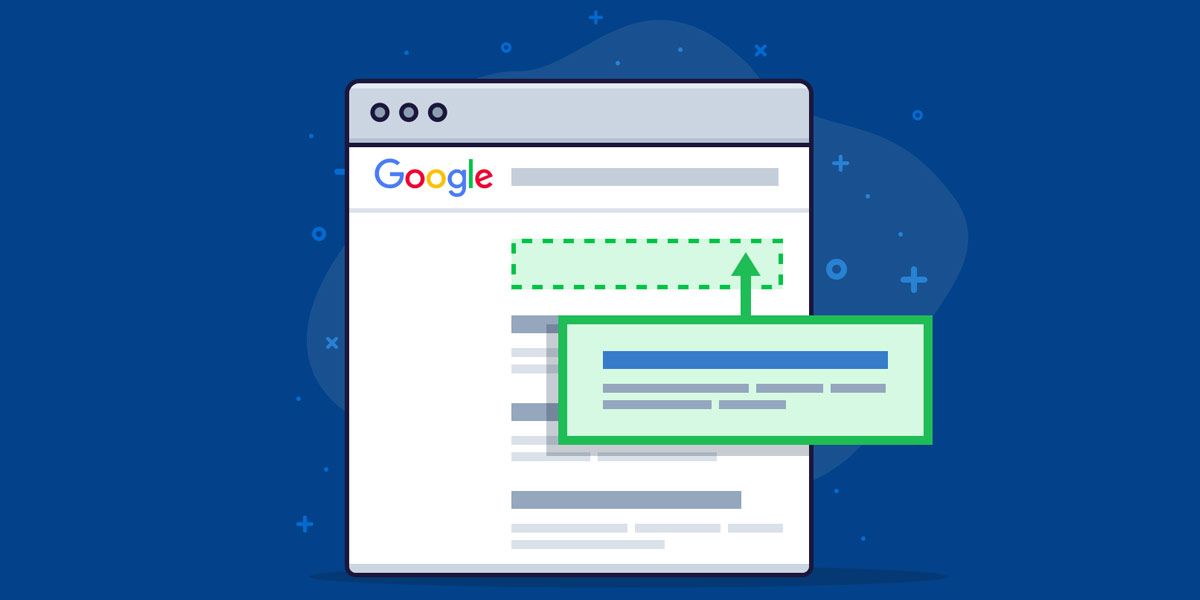How to Get on Google’s First Page

#1 SEO Question… How to Get on Google’s First Page?
Google is the most popular search engine in the world, and getting on the first page of Google search results can be a game-changer for businesses and websites. However, ranking on the first page of Google is a highly competitive and challenging task that requires a comprehensive and strategic approach to search engine optimization (SEO).
In this article, we’ll discuss the most effective strategies and best practices on how to Get on Google’s First Page, including keyword research, on-page optimization, link building, content creation, social media marketing, local SEO, and performance monitoring and analysis.
Table of Contents
- Conduct Keyword Research
- Optimize Your Website’s On-Page Elements
- Build High-Quality Backlinks
- Create Quality Content
- Utilize Social Media
- Focus on Local SEO
- Monitor and Analyze Your Website’s Performance
- Conclusion
- FAQs

How to Get on Google’s First Page – Table of Contents
1. Conduct Keyword Research
Keyword research is the process of identifying the most relevant and high-traffic keywords and phrases that your target audience is searching for on Google. By optimizing your website’s content and on-page elements for these keywords, you can increase your website’s relevance and visibility to Google’s search algorithms.
To conduct keyword research, you can use a variety of tools such as Google Keyword Planner, SEMrush, Ahrefs, and Moz. These tools can help you identify the most popular and competitive keywords in your niche, as well as related keywords and long-tail phrases that you can target to attract more targeted traffic to your website.
When selecting keywords, it’s important to consider their search volume, competition level, and relevance to your business and target audience. You should aim to select a mix of high-traffic and low-competition keywords, as well as long-tail phrases that are more specific to your products or services.
2. Optimize Your Website’s On-Page Elements
On-page optimization refers to the process of optimizing your website’s content, structure, and HTML elements to improve its relevance and user experience. On-page SEO can include optimizing your website’s page titles, meta descriptions, header tags, content, images, and internal links.
Some key on-page optimization strategies to consider include:
- Including your target keywords in your page titles and meta descriptions
- Using header tags (H1, H2, H3) to structure your content and include your target keywords
- Writing high-quality and informative content that provides value to your readers
- Optimizing your images with alt tags and descriptive filenames
- Including internal links to related content on your website
By optimizing your website’s on-page elements, you can improve its relevance and user experience, which can increase its chances of ranking higher in Google’s search results.

How to Get on Google’s First Page – Optimize On-Page Elements
3. Build High-Quality Backlinks
Backlinks are links from other websites that point to your website, and they are a key ranking factor in Google’s search algorithm. High-quality and relevant backlinks can help improve your website’s authority and credibility, and increase its chances of ranking higher in Google’s search results.
To build high-quality backlinks, you can use a variety of strategies such as:
- Guest posting on relevant and authoritative websites in your niche
- Creating high-quality and shareable content that encourages other websites to link to your website
- Participating in online communities and forums related to your niche
- Reaching out to other websites and influencers in your niche to request backlinks
When building backlinks, it’s important to focus on quality over quantity. Avoid using black-hat SEO tactics such as buying backlinks or using link farms, as these tactics can result in penalties and damage your website’s reputation.
4. Create Quality Content
Content is king when it comes to SEO. By creating high-quality and informative content that resonates with your target audience, you can attract more traffic to your website, increase engagement, and improve your website’s authority and relevance.
When creating content, it’s important to focus on quality over quantity. Avoid using thin or duplicate content, as Google’s algorithms can penalize websites that engage in these practices. Instead, aim to create unique, informative, and shareable content that provides value to your readers.
Some tips for creating quality content include:
- Conducting thorough research on your topic to ensure accuracy and relevance
- Writing clearly and concisely that’s easy to understand
- Using images, videos, and other multimedia elements to enhance your content
- Providing actionable and practical tips that readers can implement
- Including your target keywords naturally and strategically within your content
By creating quality content, you can not only improve your website’s visibility and relevance to Google’s search algorithms but also establish your brand as a thought leader in your industry.

How to Get on Google’s First Page – Backlinks
5. Utilize Social Media
Social media can be a powerful tool for promoting your website and attracting more traffic to your site. By building a strong social media presence and sharing your content and updates on social media platforms such as Facebook, Twitter, LinkedIn, and Instagram, you can increase your website’s visibility and engagement.
Some tips for utilizing social media for SEO include:
- Building a strong and consistent brand presence across all social media platforms
- Sharing your content and updates regularly on social media
- Engaging with your followers and responding to their comments and questions
- Using social media advertising to target specific audiences and drive traffic to your website
- Including social media sharing buttons on your website to make it easy for readers to share your content on social media
By utilizing social media effectively, you can not only attract more traffic to your website but also improve your website’s authority and relevance in the eyes of Google’s search algorithms.
6. Focus on Local SEO
Local SEO is a specific type of SEO that focuses on improving your website’s visibility and relevance for local search queries. By optimizing your website’s content and on-page elements for location-based keywords and phrases, you can attract more targeted traffic from your local area and improve your website’s authority and relevance in local search results.
Some tips for focusing on local SEO include:
- Including your business’s name, address, and phone number (NAP) on your website and ensuring consistency across all online directories and listings
- Creating location-specific landing pages for each of your business’s locations
- Optimizing your website’s content and on-page elements for location-based keywords and phrases
- Building high-quality and relevant backlinks from local websites and directories
- Encouraging customers to leave reviews on your Google My Business page and other online review sites
By focusing on local SEO, you can improve your website’s visibility and relevance for local search queries, which can help attract more targeted traffic and customers to your business.

How to Get on Google’s First Page – Local SEO
7. Monitor and Analyze Your Website’s Performance
Finally, to ensure that your SEO strategies are working effectively, it’s important to monitor and analyze your website’s performance regularly. By using tools such as Google Analytics, SEMrush, and Ahrefs, you can track your website’s traffic, rankings, and engagement metrics, and make data-driven decisions to improve your SEO strategies.
Some key metrics to track and analyze include:
- Organic traffic
- Keyword rankings
- Backlink profile
- Bounce rate
- Time on site
- Conversion rate
By monitoring and analyzing your website’s performance, you can identify areas for improvement and make data-driven decisions to improve your website’s visibility and relevance in Google’s search results.
8. Conclusion
Getting on the first page of Google search results is a goal for many website owners and businesses. However, achieving this requires a comprehensive and strategic approach to SEO. By implementing the tips and strategies outlined in this article, you can improve your website’s visibility and relevance to Google’s search algorithms, attract more targeted traffic to your site, and ultimately achieve higher rankings in search results.
Remember to focus on providing high-quality and informative content, building a strong backlink profile, utilizing social media effectively, and monitoring and analyzing your website’s performance to continually improve your SEO strategies.
If you’re new to SEO or unsure where to start, consider consulting with a professional SEO agency or expert who can help guide you through the process and ensure that your website is optimized for success.

How to Get on Google’s First Page – Conclusion
9. FAQs
How long does it take to get on the first page of Google?
There is no definitive answer to this question as it can vary depending on a variety of factors such as the competitiveness of your industry and keywords, the quality of your content, and the strength of your backlink profile. However, with consistent and strategic SEO efforts, you can begin to see improvements in your website’s rankings within a few months.
Do I need to hire an SEO expert to improve my website’s rankings?
While hiring an SEO expert can be beneficial, it’s not always necessary. With some basic knowledge and the right tools and resources, you can improve your website’s rankings on your own. However, if you’re new to SEO or unsure where to start, working with an expert can help ensure that your website is optimized for success.
How important are backlinks for SEO?
Backlinks are a crucial factor in SEO as they signal to Google’s algorithms that other websites consider your content to be high-quality and relevant. However, it’s important to focus on building high-quality and relevant backlinks, rather than simply quantity. Low-quality or spammy backlinks can harm your website’s rankings and reputation.
Can social media help improve my website’s rankings?
While social media doesn’t directly impact your website’s rankings, it can indirectly help improve your website’s visibility and relevance to Google’s search algorithms. By building a strong social media presence and sharing your content and updates regularly, you can attract more traffic to your website and improve your website’s authority and relevance in Google’s search results.
How often should I update my website’s content for SEO?
There is no set frequency for updating your website’s content for SEO. However, it’s important to regularly add new, high-quality and informative content to your website to keep it fresh and relevant to your audience. Additionally, updating your website’s content can signal to Google’s algorithms that your website is active and up-to-date, which can help improve your rankings over time.

